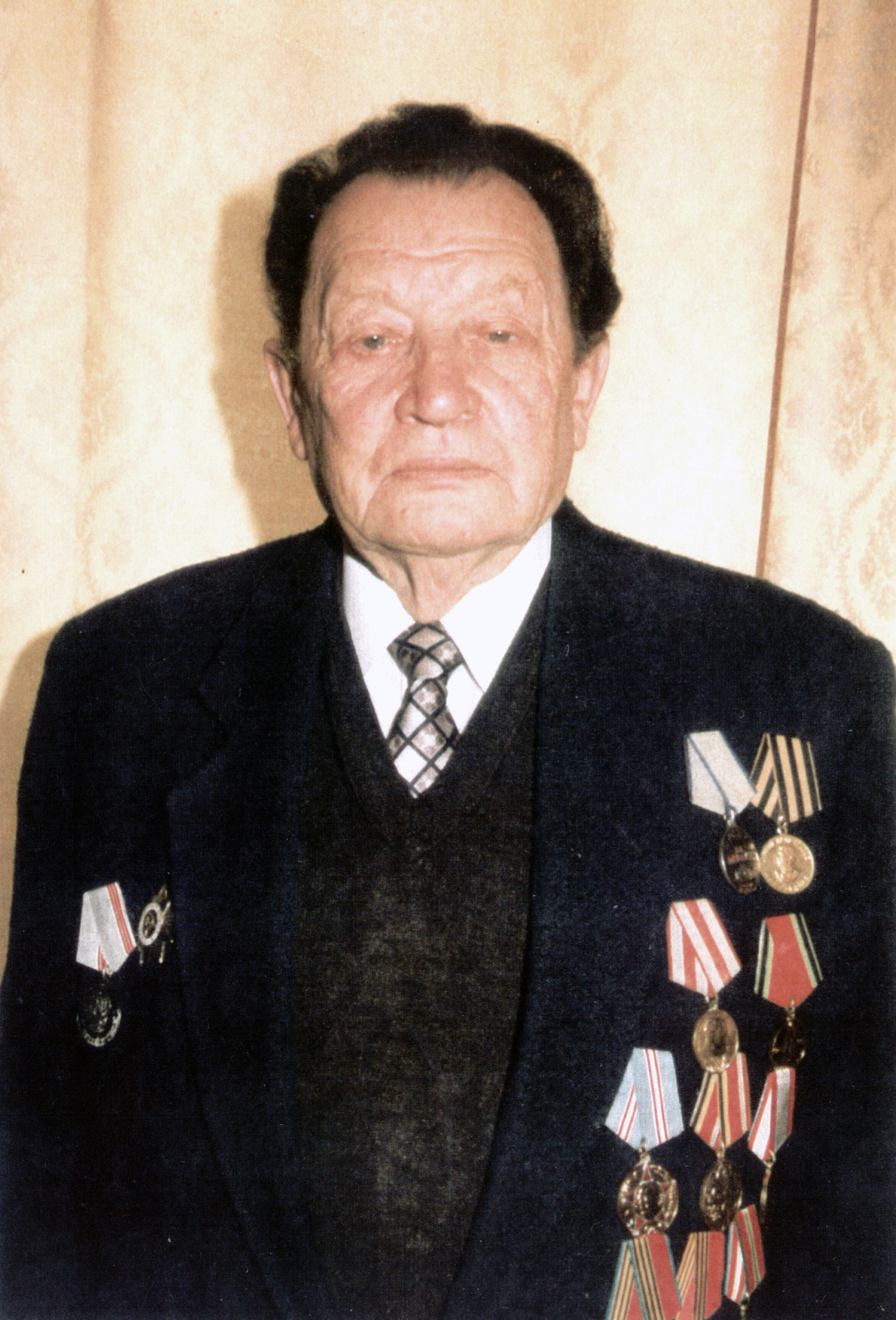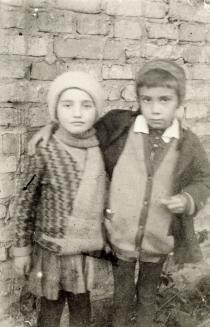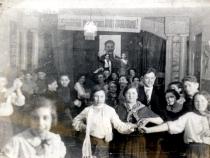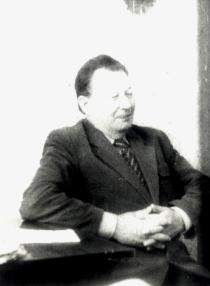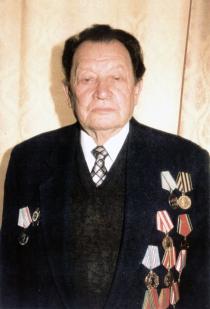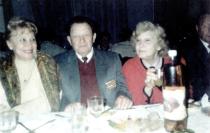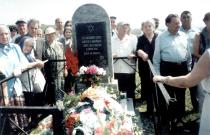I was photographed on the anniversary of Victory Day, 9th May 1994 This photo was taken at Hesed in Chernovsty and placed on the Board of Glory of the War Veterans.
During the war our village Koryshkov became a Jewish ghetto. The Soviet army liberated us from the ghetto in March 1944. I was 20 years old. I remember the first Soviet tanks bursting into the ghetto. Romanians had left the night before. The hatch of the first tank was open. A soldier was standing there repeating one word 'Free!' We were afraid to believe it. Many people had tears in their eyes. I volunteered to go to the military registry office and was sent to the front with the units of the Soviet army that liberated us. My family stayed in Koryshkov. I was at the front for about a year and a half. I entered the Communist Party and became a communist. It wasn't like I needed it. I grew older and could analyze things. I remembered collectivization and the arrests in the 1930s. I understood that it was the intentional extermination of the people under the slogans of the Communist Party. But I understood that it was necessary to join the Communist Party to make a career.
I served in the infantry during the war. I was a good soldier and my comrades treated me with respect. I wasn't the only Jewish soldier, but at that time there was no national segregation of people. We had other criteria. Shortly before Victory Day I was severely wounded near Prague. On Victory Day I was in a hospital in Cracow. Before I was wounded I took part in the liberation of Ukrainian areas, the Carpathians, Ivano-Frankovsk and the region around it, Czechoslovakia, Poland and Hungary. When the war was over I was sent to serve in the reserve regiment. This regiment was sent to the Far East to fight in the war with Japan. Our military unit was based in Khabarovsk. After the war with Japan was over, I was sent to study at the Aviation School in Khabarovsk. I studied there for a year and then the school was disbanded a month and a half before our graduation. We were given qualifications as aircraft mechanics. Upon graduation I served at the air units in North Korea and China. We were fighting to liberate China, Korea and Manchuria from Japanese occupation. We lived in a military neighborhood that was a confined area with its own supplies and health services. We were not allowed to go into town. We were told that the situation in town was complicated and that provocations were possible. We worked at the aerodrome and lived in the barracks. We received newspapers and letters. I never went outside our military neighborhood. I was given the rank of sergeant during my service.
